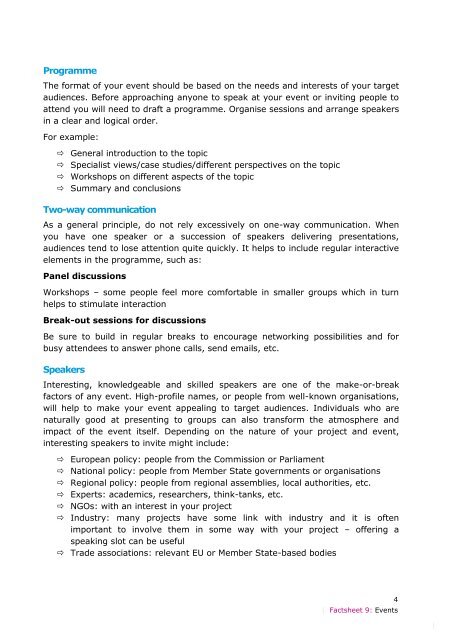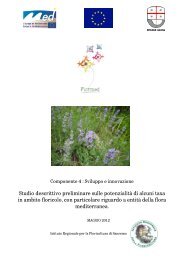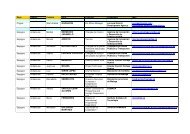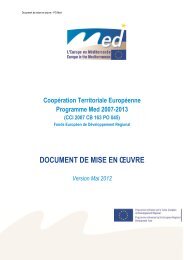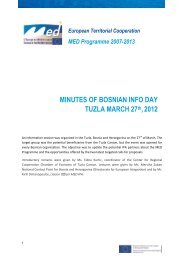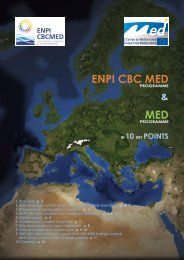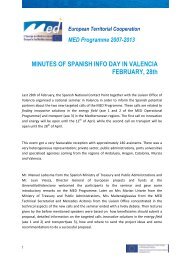MED Communication Handbook - Programme Med
MED Communication Handbook - Programme Med
MED Communication Handbook - Programme Med
You also want an ePaper? Increase the reach of your titles
YUMPU automatically turns print PDFs into web optimized ePapers that Google loves.
<strong>Programme</strong><br />
The format of your event should be based on the needs and interests of your target<br />
audiences. Before approaching anyone to speak at your event or inviting people to<br />
attend you will need to draft a programme. Organise sessions and arrange speakers<br />
in a clear and logical order.<br />
For example:<br />
� General introduction to the topic<br />
� Specialist views/case studies/different perspectives on the topic<br />
� Workshops on different aspects of the topic<br />
� Summary and conclusions<br />
Two-way communication<br />
As a general principle, do not rely excessively on one-way communication. When<br />
you have one speaker or a succession of speakers delivering presentations,<br />
audiences tend to lose attention quite quickly. It helps to include regular interactive<br />
elements in the programme, such as:<br />
Panel discussions<br />
Workshops – some people feel more comfortable in smaller groups which in turn<br />
helps to stimulate interaction<br />
Break-out sessions for discussions<br />
Be sure to build in regular breaks to encourage networking possibilities and for<br />
busy attendees to answer phone calls, send emails, etc.<br />
Speakers<br />
Interesting, knowledgeable and skilled speakers are one of the make-or-break<br />
factors of any event. High-profile names, or people from well-known organisations,<br />
will help to make your event appealing to target audiences. Individuals who are<br />
naturally good at presenting to groups can also transform the atmosphere and<br />
impact of the event itself. Depending on the nature of your project and event,<br />
interesting speakers to invite might include:<br />
� European policy: people from the Commission or Parliament<br />
� National policy: people from Member State governments or organisations<br />
� Regional policy: people from regional assemblies, local authorities, etc.<br />
� Experts: academics, researchers, think-tanks, etc.<br />
� NGOs: with an interest in your project<br />
� Industry: many projects have some link with industry and it is often<br />
important to involve them in some way with your project – offering a<br />
speaking slot can be useful<br />
� Trade associations: relevant EU or Member State-based bodies<br />
4<br />
� Factsheet 9: Events<br />
�


